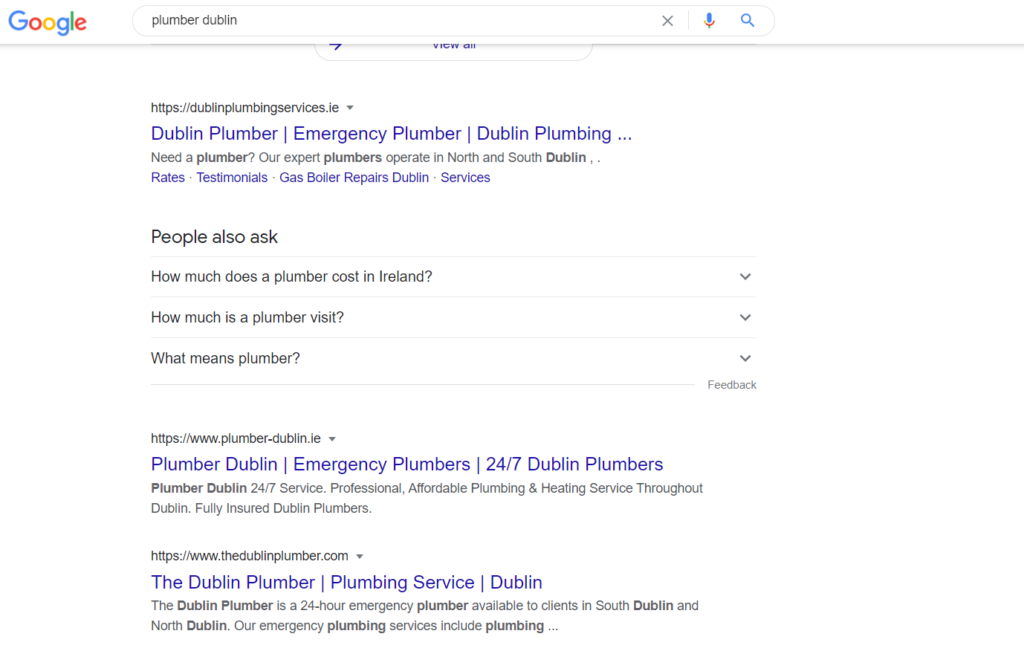[7 minute read]
SEO or search engine optimization is one of those industry buzzwords that gets thrown around haphazardly at agency brainstorms and marketing meetings. It’s been top of mind for many marketers since content was crowned king and search engine crawlers started to mimic the way human beings think.
It’s got to do with keywords, rankings, metadata, title tags and impressive-sounding things like that. If the elements in the previous sentence sounded like the stuff of some extraterrestrial experiment, you’ve landed in the right place. We’re about to lift the veil on this thing called SEO and tell you why you as a small business owner or marketer should care about it.
Search engine optimization is the practice of structuring the design and content of your website (or certain webpages) to make them more attractive to search engine crawlers. These crawlers are essentially little bits of code that run around the internet scanning content and determining what it’s all about. We could really have fun with this analogy, but moving on…
So why would you want the content on your site to be attractive to search engine crawlers? Quite simply, the more relevant your content is, the higher your website or web page will be ranked for specific keyword searches, and the easier it will be for the right people to find you. Allow us to illustrate.
We entered the search term “plumber Dublin,” into Google. At the top of the page, we see a few ads − those are ads that companies pay for. Under the ads, there’s a map with listings of various plumbing services in Dublin. And under that, we got what is called “organic search results.”

What you’re doing by optimizing your website for search is competing with other companies to get to the top of that list when the most relevant search terms (also referred to as “keywords”) are entered into a search engine by your audience.
As you can see in this particular example, dublinplumbingservices.ie has done their homework. Just to give you an idea of how important it is to be ranked among the listings on the first page of results, Moz (a global authority on everything SEO) reports that 71% of search traffic clicks come from the first page of results on Google for search terms in general. In other words, only 29% of people are going to click through to the second page of results when trying to find what they’re looking for.
Now, onto the practical stuff. “How do I optimize my small business website?” you ask. The answer can be complex, but there are some simple things you can do right now if you’re what we like to call a “DIY-style marketer.” Roll up those sleeves. Here they are (in no particular order):
Step One: Identify the keywords you want to target
Keywords are the words that people type into search engines when they’re looking for information. Examples could be: “holiday accommodation Ireland,” “the future of fintech,” “buy shoes online,” or even something like: “when is the next Pirates of the Caribbean movie being released?” (by the way, if you find out, please let us know).
There are two main ways to identify the keywords you should be targeting. The first method is… (drumroll) common sense. You probably already have an idea of what your target audience would be searching for, or at least which search terms you’d like to rank highly for. Remember, competition might be stiff for broad keywords like “dentist in Dingle,” so if you don’t have a gargantuan budget, you can be strategic and try ranking for something a bit more streamlined. For example, “emergency dentist Dingle,” “dental work Dingle,” or “cosmetic dentistry Dingle,” might be a few easier ones to target. But (and this is a big “but”), don’t make a guessing game out of keyword research. You don’t have to when there are some great, free tools you can use. Here’s a useful guide.
Step Two: Incorporate your keywords into your site’s content
We know what you may be thinking − simply copy and paste your keyword hundreds of times at the bottom of your page and search engine crawlers will find it and rank you. But, if you do this, you’ll be entering the deep, dark realm of what’s called “black hat SEO,” or “keyword stuffing.” You may have got away with this in the 90s, but Google has wisened up to these kinds of cheap tricks. They’ve created super smart algorithms that can identify whether content is relevant or not, whether it’s readable or not, and even how human-centric it is in terms of language use. Panda, penguin, hummingbird − they may sound friendly but they’re part of an arsenal of algorithms that police the internet for general dodginess.
Here are 4 places where your keywords need to appear in your site’s content:
- Your URLs
We’ll explain this with an example. You may be a business called, “All Season Spring”, a flower delivery service based in Kilkenny, and you want to rank for the keyword, “deliver flowers Kilkenny.” Ideally, what you need to do is include that keyword in your URLs. It may look something like this: www.allseasonspring.com/deliver-flowers-in-and-around-Kilkenny. Here are some quick tips.
- Title Tag
Your page’s title is one of the most influential elements that search engines crawl. It’s also what people will see when your website pops up in search results. Let’s go back to our previous example: “plumber Dublin.”

In this case there are three keywords in the title tag: “Dublin Plumber | Emergency Plumber | Dublin Plumbing.” All bases are covered.
- Meta Description
The meta description of any web page is what someone will read under the title tag when your website or web page pops up in search results. Here’s an example of a good one wherein “Truevo small business” is the keyword.

- Body Content
Throughout the text on every page of your website, you need to include keywords. Back in the day, SEO practitioners used something called “keyword density” to decide how many times to mention a keyword. Keyword density describes the number of keywords on a page as a percentage of the total amount of copy. Best practice was around 1-2%. The verdict is out on whether to follow it like you would an exact science because sometimes using too many keywords can sound forced and unnatural, and this will not make Google’s algorithms happy. Generally, writing body content needs to sound human and read clearly.
That, in a tiny nutshell, people of Truevo, is what SEO is about. And it matters to small businesses because by employing a few simple strategies, you can make your company’s website visible to your target audience without spending anything but time, and that’s always a big win.
How to write for SEO is another topic we can explore in more detail. If you’d like us to do that, please let us know on social media: Facebook, Instagram, Twitter and Linkedin.
P.S. Looking for a comprehensive payments solution that will get you paid anywhere, any time? Get Truevo. We can’t wait to connect with you.



